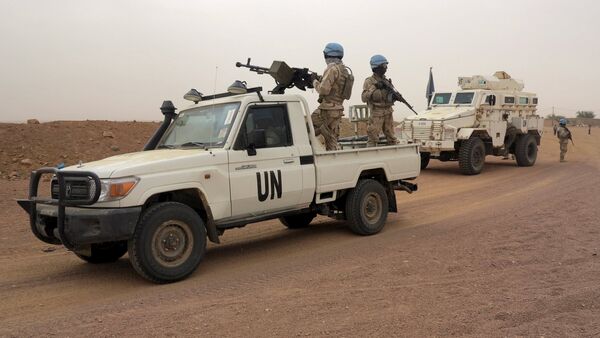So how could it happen, seeing as how the United Nations is supposed to have sufficient tools at its disposal to prevent it?
One such example happened in 1994, after the airplane carrying Hutu Rwandan president Juvénal Habyarimana was shot down on the night of April 6th. The killings, later recognized as genocide, began hours after the president’s death – Hutu majority slayed Tutsi and moderate Hutu populations. Estimates of the final death toll are up to a million of Rwandans.
This didn’t come out of the blue. The threat was apparent, following the Rwandan Civil War the tensions between the Hutu and the Tutsis were peaking and in January of 1994, the UN headquarters received a message, warning of the looming violence against the minorities. This threat was largely ignored until it was too late.
In 2004 Kofi Annan, who was head of UN peacekeeping forces during the genocide, lamented at a UN memorial conference:
The genocide in Rwanda raised questions that affect all humankind — fundamental questions about the authority of the Security Council, the effectiveness of United Nations peacekeeping, the reach of international justice, the roots of violence, and the responsibility of the international community to protect people threatened by genocide and other grave violations of human rights… one must ask, are we confident that, confronted by a new Rwanda today, we can respond effectively, in good time? We can by no means be certain we would.
So, what happened? It was simple and horrible at the same time. Head of the UN peacekeeping force which was present in the region during the massacre, Lieutenant General Romeo Dallaire, admitted during the conference that no one was interested in saving the victims and the bulk of the peacekeeping force was ordered to leave. He added:
I still believe that if an organisation decided to wipe out the 320 mountain gorillas there would be still more of a reaction by the international community to curtail or to stop that than there would be still today in attempting to protect thousands of human beings being slaughtered in the same country.
His sentiment does some true. Rwanda was not the only country where genocide took place despite the watchful eye of the United Nations. A similar tragedy happened in Darfur, Sudan. The conflict began in 2003 and is still active. In 2004 it was declared genocide by United States Secretary of State Colin Powell, although no other member of the UN Security Council made similar statements since then. Although UN Security Council authorized an International Commission of Inquiry on Darfur, the following January it issued a report stating that "the Government of the Sudan has not pursued a policy of genocide". Despite this report, the very same year Janjaweed militia were using artillery and helicopters to attack the population of Darfur. Although the UN did condemn these actions, no peacekeeping forces were deployed at the time.
These are not the only mass killings that the UN failed to stop. The 1995 Srebrenica Massacre is considered to be the worst act of mass murder Europe since World War II. Almost 8,000 civilians were killed when an unprepared small force of UN peacekeepers failed to protect Bosnians from Serbs.

